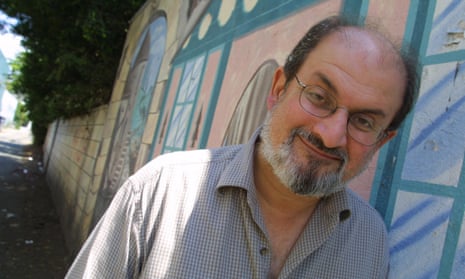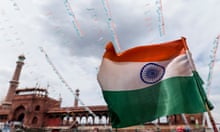It was more than a decade ago when I was introduced to the work of Salman Rushdie, thanks to the recommendation of a writer in my homeland of Pakistan. As an aspiring writer myself, I was always told that to become really good, you have to “read, read and read”. Yet I often found I had already read the authors who were recommended to me, easily available as their works were in my country.
But when a writer insisted I must read Rushdie, the stakes were raised. I loved many writers living in exile, from Márquez to Kundera. But Rushdie was the first writer for me who had caused so much anger in the Muslim world and enraged some fanatics.
That his books were banned in my country and the mere mention of his name was thought to be a sin only increased my curiosity. As I was to discover, just getting hold of a copy of one of his works, let alone reading the texts, had become an illicit pleasure for many young people of my generation.
To access his books, someone recommended visiting a specific bookstore in Pakistan. In a hair-raising exchange that felt as though I were looking to buy illegal drugs, I went and whispered into the bookseller’s ear that I needed the books of Rushdie.
The bookseller responded that he would get me all the author’s books but each would cost at least 20,000 rupees (£75). The cost of The Satanic Verses would be triple, given the risk he was taking by selling it; in effect, the vendor said, a death sentence if caught.
I could not afford the cost, so I ended up reading Rushdie online. Then, during a foreign trip, I was finally able to buy hard copies.
On my way back to Pakistan, trying to wrap his books in my luggage so no one could discover them, I felt as if I was smuggling explosives. I asked myself: what if they catch me with his books? Will I be sentenced to life imprisonment? Anything can happen here; it is Pakistan, I murmured to myself.
But I didn’t have The Satanic Verses with me, and did not actually like the book. I am sure most of the fanatics who wished him dead have not actually read him. Certainly not his entire works – be it Midnight’s Children or Haroun and the Sea of Stories. Or his underrated masterpiece Shame, which I especially enjoyed and felt spoke so well about everything that is wrong with Pakistan.
after newsletter promotion
Rushdie talks about arrests for the mere guilt of knowing a “wrong” person. He wrote down the story of a poet friend who spent many months in jail for “social reasons”. He writes: “That is to say he knew somebody who knew somebody who was the wife of the second cousin by marriage of the step-uncle of somebody who might or might not have shared a flat with someone who was running guns to the guerrillas in Baluchistan. You can get anywhere in Pakistan if you know people, even into the jail.”








